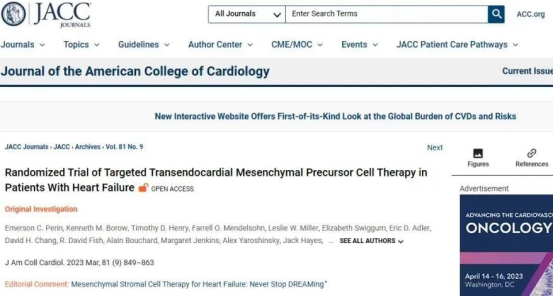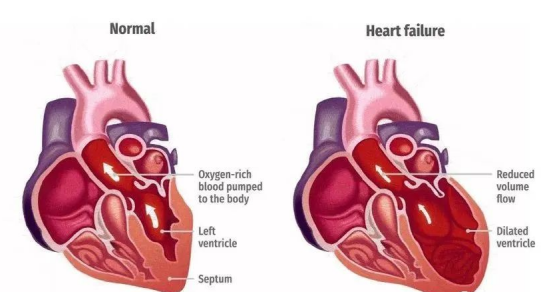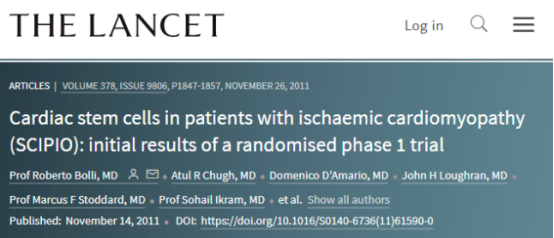Industry News
Witness the power of stem cells – Science Daily: Results announced for the largest cell therapy trial for chronic heart failure to date
WHO released Global Health Estimates 2019 which showed the following as the top ten leading causes of death worldwide: ischemic heart disease; stroke; chronic obstructive pulmonary disease; lower respiratory tract infections; neonatal conditions; trachea, bronchus, and lung cancers; Alzheimer's disease and other dementias; diarrheal diseases; diabetes; and kidney diseases.
According to global health data from 2000 to 2019, heart disease has been the leading cause of death worldwide, accounting for 16% of all deaths, with the number of deaths from heart disease increasing to nearly 9 million worldwide in 2019.

(Source: Texas Heart Institute)
By Zhang Mengran, Science Daily (28 Feb. 2023, p.04: International)
On February 27, scientists at The Texas Heart Institute announced the results of the largest cell therapy trial to date in patients with chronic heart failure.
The therapy targets chronic heart failure due to low ejection fraction and benefits patients by improving the heart's pumping capacity and reducing the risk of heart attack or stroke. For patients that receive the treatment, its effectiveness in reducing cardiovascular death is evident.

(The findings are published in the Journal of the American College of Cardiology)
1. Discovery of the MPC
A landmark clinical trial shows that a special type of immunomodulatory cells called MPC (mesenchymal precursor cells), developed by Mesoblast Inc, has shown the potential for the first time to address heart failure.
MPCs are considered to have good anti-inflammatory, pro-angiogenic and pro-healing effects. For this trial, the cells were sourced from the bone marrow of healthy adult donors. Patients participating in the trial also received conventional therapy in the meantime, suggesting that cell therapy is synergistic with state-of-the-art heart failure medications.
2. Clinical trial
The phase III trial, conducted at 51 sites, involved 565 patients with chronic heart failure. Over a mean follow-up of 30 months, MPC treatment reduced the incidence of heart attack or stroke by 58%, and the benefit rose to 75% in patients with high levels of blood markers for inflammation.
3. Research findings
The research findings shed light on the inner workings of cell therapy. The cells appear to work by reducing inflammation, increasing microvascular flow, and strengthening heart muscle. Locally, in the heart, the MPCs can protect cardiac muscle cells from dying and can improve blood flow and energetics.
In large blood vessels throughout the body, MPCs help decrease plaque instability, which is what leads to heart attacks and strokes. The cells also have a systemic immune modulatory and anti-inflammatory effect.
Heart failure is not a standalone condition, but rather the end stage in the development of heart diseases.

Almost all cardiovascular diseases eventually lead to heart failure. Myocardial injury resulted from myocardial infarction, cardiomyopathy, hemodynamic overload, inflammation and any other causes can result in changes in myocardial structure and function, culminating in poor pumping and/or filling function.
The incidence and mortality rate of heart failure remains high and has become the second leading cause of heart disease-related deaths after coronary heart disease. According to statistics, the weighted prevalence of heart failure among residents aged ≥35 years in China is 1.3%, or about 13.7 million people who suffer from heart failure.
Heart failure can be divided into chronic heart failure and acute heart failure by the time of occurrence, speed and severity. According to data, the average annual number of hospitalizations for heart failure inpatients in China is 3.3, with 9.7 in the average number of hospitalization days, and 29,746 yuan in the annual per capita hospitalization cost. This suggests that heart failure has become a huge burden to China’s public health system.
The first-ever patient to receive the stem cell therapy
In November 2011, the world’s leading medical journal The Lancet reported on the world's first clinical trial of stem cell therapy for heart disease. The 65-year-old Mike Jones, who suffers from congestive heart failure, became the world's first heart failure patient to receive stem cell transplant therapy in July 2009.

Jones could barely climb stairs before treatment. Today, he can chop wood with ease and clean up fallen branches in his 9-acre yard. His "ejection fraction" (a measure of how well his heart pumps) has improved from 20% before treatment to 40% two years after treatment (55-70% of normal range).
After receiving stem cell therapy, the 14 patients who participated in the study during the same period also demonstrated good clinical outcomes, with the average ejection fraction improving from the initial 30.3% to 38.5%. Over a year, the amount of scar tissue on heart also decreased by 30%.
Stem cell therapy will become more standardized and refined as regenerative medicine keeps moving forward. When the effectiveness of stem cell therapy becomes proven not only in the cardiovascular field, but also for many other complex and intractable diseases, it will surely bring hope to more patients around the world.